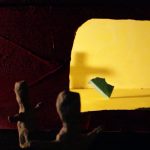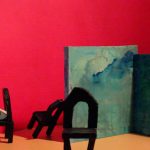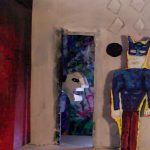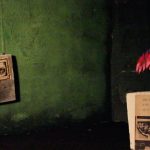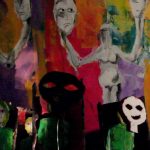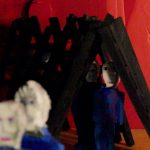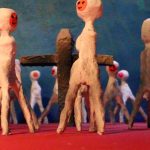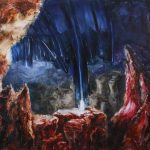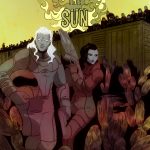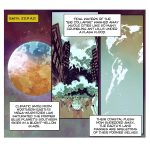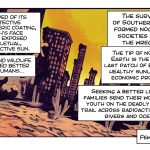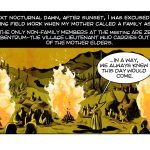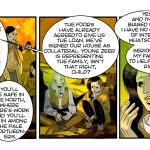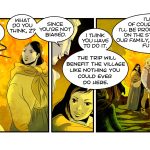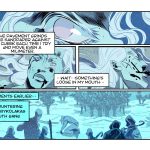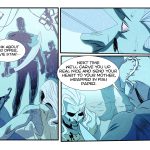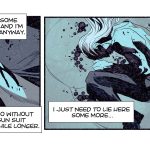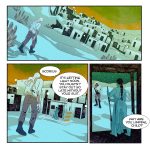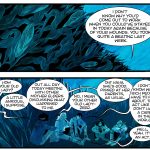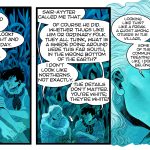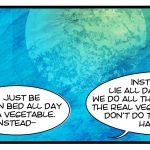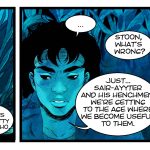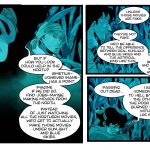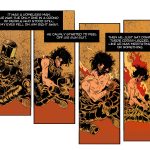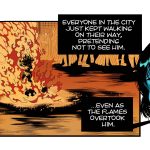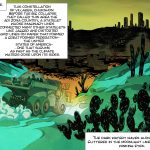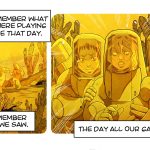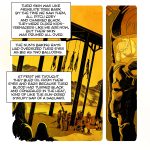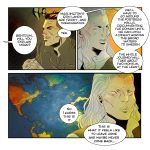





Beth Ann Fennelly was born in New Jersey and grew up in Illinois, but has become a Southern transplant and is now the Poet Laureate of Mississippi, as well as teaching at the University of Mississippi in Oxford. She is the author of six books and recipient of numerous awards. Her three collections of poetry are: Unmentionables: Poems (W. W. Norton, 2008), Tender Hooks (W. W. Nortion, 2004), and Open House: Poems (Zoo Press, 2002). More recently, she has focused her work in prose. She published Great with Child: Letters to a Young Mother (W. W. Norton, 2006), then co-authored the novel The Tilted World (Harper Collins, 2013) with her husband, Tom Franklin. Most recently, she published Heating & Cooling: 52 Micro-Memoirs (W. W. Norton, 2017).
We caught up with Beth Ann Fennelly at the Miami Book Fair in 2017 shortly after Heating & Cooling came out. Just this week, Heating & Cooling has been released in paperback, and so it’s a good time for us to finally get this interview published.
Lisa Roney for The Florida Review:
I want to start with question about the wider context of your evolution as a writer. I’ve worked with a number of people over the past year—Brenda Miller and her co-author, Lee Gulyas, and Monica McFawn and Darrell Nicholson—who have been writing together. They’ve talked about how much they enjoy the co-authoring process, although I’m sure it has its challenges as well. I think this is a little bit new. It’s not that people haven’t done it before, but it’s something that people are really paying attention to now. And I guess I wanted to ask about you and Tom Franklin co-authoring your previous book The Tilted World. I also want to ask about how you started off as a poet. Can you describe that evolution from writing primarily poetry to adding work in prose, and then doing a co-authored project. How did all of that happen?
Beth Ann Fennelly:
It seems that every writing project I’ve taken on is never with foresight or part of a career strategy.
[laughter]
Everything is an accident and serendipity. I thought I would only be a poet—that’s really all I ever wanted because I think it’s such a beautiful art form. At first, I accidentally wrote a non-fiction book called Great with Child. That was a collection of letters that I didn’t write thinking they would be collected into a book. And so that was happy and lucky.
Then I wrote another book of poems. Then the novel with Tommy came about in just this bizarre way. We had been thinking a lot about the flood of 1927 after Katrina happened, and how if that story hadn’t been written out of history maybe Katrina would’ve been handled differently. That’s the problem when things get written out of history—we can’t learn from them. We thought this was a big Southern story that needed to be told. We ended up writing a short story about it—really as a lark, without thinking too much about it, except then it got reprinted in Best American Mysteries and a couple of other big anthologies. And Tommy’s editor called up and said, “You didn’t tell me about this story.” And Tommy said, “Well, what’s to tell?” And the agent said, “It’s your next novel.”
Due to that, we suddenly found ourselves writing a novel, although it might have happened anyway because these characters were still in my head after the short story. The research I had done for us to write the short story was really compelling to me, and I was thinking how much more there was. So, we wrote the novel, and then after that, there was a period where I felt I wasn’t writing. I wanted to write another novel, actually. But I was going through this long, slightly terrifying period of “not writing.” I kept saying to Tommy, “I’m not writing. I don’t know what’s wrong with me.”
Every morning, I’d get my notebook and write down a couple of weird, little thoughts, and nothing was adding up to something. I would write about a little conversation I’d heard or a little memory. I’d been doing that for a long time when one morning I thought how excited I was to get back to my desk. I recognized the feeling of writing before I recognized the product because that feeling, that excitement is how I feel when the writing’s going well. That morning, I went back and started paging through my notebook of all these random little bits of conversations and memories that I kept waiting to add up to something.
For the first time, I thought, “What if I stop waiting for it to add up to something? What if it is something, just a really small something?” And then I thought of the term ‘micro-memoirs’, and in a weird way coming up with the term freed me to complete the project. None of this was done with great forethought. And in fact, if I were the type of person who had forethought, I wouldn’t have done any of this, because it’s not really what one wants from one’s career, in a way. Because your publicist wants to be able to say, “Oh, she writes sonnets about her cat.” The expectation is that you just do the one thing.
TFR:
Right, right, very specific.
Fennelly:
Yeah. And so just to confuse things, now I’m the Poet Laureate of Mississippi, and I haven’t written a poem in three years. [laughter] Oh no.
TFR:
That’s hilarious.
Fennelly:
I know.
TFR:
That’s so funny. But you will. Do you doubt it?
Fennelly:
No, not really. For now, I’m just in love with the sentence, and I used to be in love with the line. I’m just waiting for the cycle to come back around to that.
TFR:
One of the things I am also curious about is your embrace of Mississippi. You mentioned how The Tilted World was a Southern story that needed to be told. It’s often difficult for those who are raised and educated in other regions, as you have been, to find a happy home in the deep South. And yet you seem to have done it and have embraced it as an identity. And so how has that happened for you as a person and a writer? I grew up in the South, in Tennessee. I was gone for a long time, and then when I got the job in Orlando at UCF, I had friends who wouldn’t speak to me. They were like, “You’re going back to the South? How can you do that?” And I was like, “Well, it’s a great job where I get to teach creative writing all the time and no composition.” [chuckle] There were those kinds of things. But there’s so often that attitude of hostility from people who don’t know the South. I just wonder if there was a transition for you, if it was difficult for you, or if you’re just the kind of person who embraces where you are.
Fennelly:
I grew up, as you say, in the Midwest. And the Midwest landscape and architecture, I understood intellectually why they were beautiful, or why I was supposed to find them beautiful. But when I moved to the South for the first time—for graduate school at the University of Arkansas in 1994—I just loved it. It seemed to suit my personality in a weird way.
I come from an Irish background, and there’s a lot I love about being Irish that also seems to be very strong in the South. I love storytelling, I love music. I like emphasis on family. All those things are interesting to me. But there is the bigger question of how a place becomes a home or how we can choose a home, and I also think there’s an element of mystery to it, because the South shouldn’t have felt like home.
But it did. I met my husband the first day of graduate school. And now we have three children with Mississippi drawls. And we’ve bought five plots in the cemetery next to Faulkner.
TFR:
Has it ever been hard for you? Has there ever been a moment where you thought, “Ooh. Who are these people?”
Fennelly:
No, but I do obviously struggle with a lot of the things in the South.
Part of me accepting the role of Southerner—which wasn’t something I claimed for myself, but something people eventually honored me with—part of it is also remaining clear-eyed about the problems in the South. And in Oxford, Mississippi, it was just fifty years ago that James Meredith integrated the school. And there’s still a bullet hole where people were shooting during riots. So, it is something I think about a lot. What does it mean to be from this region and embrace this region, and yet just be determined to be part of the people who are working to change it for the better?
TFR:
That makes great sense.
Heating & Cooling is a tiny book that is nonetheless deeply rich, I found, and certainly poetic. You can definitely see your background as a poet. What do you see as the connection between poetry and memoir in this book, and more generally?
Fennelly:
When I came up with the term ‘micro-memoir’ and started thinking, “Okay, look, what are these things I’m writing?” what I realized was I wanted to take the things I loved most from the different genres. From poetry, what I love is that extreme compression and abbreviation and that lyrical explosion of the release. And from fiction, I love narrative tension. I love a page-turner quality. I like the storytelling. I like beginnings, middles, and ends. And from nonfiction, I love truth-telling. I love facts. And right now, because we are in an era of alternative facts, and truth is so malleable to some, I found my own insistence on the facts as maybe a weird reaction to that. My facts are just coming from my life, but—after spending four years writing a novel in the heads of characters—my own life seemed interesting to me again.
TFR:
One of my favorite qualities of this book and your work as a whole is how humane it is. There’s an appealing humility but without obsequiousness, if you know what I mean. There’s humor balanced with poignancy. Reading Beth Ann Fennelly is like reading someone you would really like to know.
Fennelly:
Oh, how nice.
TFR:
I just really feel that way. I think people can over-claim that they know you when they read a book. We all know that when you write, it’s not all of us that’s in the . . .
Fennelly:
I do that sometimes. I read a book and feel like I know the author.
TFR:
Sometimes, that can be really obnoxious. [laughter] I don’t mean to be weird about it, but I just think that over the years, having read a variety of your work, I feel like there’s a friendly quality. How do you feel like you achieve the balance between different tonalities that you work with? And how does that come out of your approach to drafting and revising? You’ve talked about that a little bit already with this book in particular.
Fennelly:
I love that you found it a humane book—that’s really flattering to me. I would say one of the things I wanted was for it to be the me-est book possible, and to bring in all the parts of me, and even the ugly parts. There are some pieces in here where I don’t really look all that kind or maybe even sane. But I wanted the full range of human emotions, particularly my human emotions. I didn’t want to keep anything out even if it was slightly salacious or unsavory. Part of that for me is not keeping humor out, too, which is something that I did when I was younger. As I’ve grown older, I’ve become more confident in my own voice. When I was younger, I wanted to be taken seriously. And I looked around and what are the big boys doing? Well, they’re writing poems about Greek myths. So, by God, here’s my Perseus poem. Take this. Ugh.
[laughter]
As I got older, I began to realize that what I want from a book is what I want from a friend, someone who accepts all of me. I began to realize that parts of the way I look at the world were not coming into my work. I think so much about being a human is funny. I think being a mom is funny. I think being middle-aged is funny. I think being in a long marriage is funny. What if I just stopped keeping that part out? All of these micro-memoirs are just ways of relaxing and knowing who I am and being less worried about being judged. I was taught to be a good girl. I was brought up Irish Catholic. It was pretty Victorian in some ways. And part of this book is about being less scared of someone thinking that I’m not being ladylike.
TFR:
I just laughed my head off when you were talking about having a large bladder. And I was like, “Yeah, me too.”
Fennelly:
That’s so funny. [laughter]
TFR:
But I also found more generally that I kept thinking, “Yes, me too.”
I loved a lot of the different ways that you talked about the body in the book. I don’t know how consciously you developed that as a theme, but there were some very poignant places, and there were some very funny places. I thought one of the resonances of this book was that it’s such a little book, but the complexity of the body that you depict in it was so profound. How consciously, when you were finally putting it together as a collection of pieces, did you think about those different, particular elements, but especially that body element?
Fennelly:
That’s a good question. It was hard to put the book together because they’re all stories from my life that are true with people that I know. I have myself as a child, an adolescent, and adult. I have all my major roles. I’m in there as a wife, and a mother, and a teacher, and a writer, and a human. And some of the pieces are short, and some are longer. When I first tried to put the book together, there was almost a problem of too-muchness. And I originally thought the book was gonna be a hundred pieces, because I know a couple of books that do a hundred short pieces, and I love them. But it just ended up seeming almost too exuberant.
My editor is the one who said I should cut it. She said, “Not because any of the pieces are weaker, but you need to strengthen the themes.” That inspired me to started thinking like, “Okay, this person comes in in more than one piece.” Or, “This role I have is in more than one piece,” and kind of cutting the outliers. It was a little challenging to figure out how to narrow it down. But narrowing it down did strengthen the themes. And I am really interested in the body, particularly the female body, and got that way through becoming a mother, actually, and writing about my body for the first time when it started to go south.
[laughter]
TFR:
We take it for granted. And then . . .
Fennelly:
Yes. Pregnancy and childbirth and all that made me inhabit my body and be intellectually engaged with walking around in a body in a way I hadn’t really noticed when I was younger, when inhabiting it was more thoughtless.
TFR:
I think many women writers, especially poets and nonfiction writers, are reaching out into this social moment that we’re having. With the loss of Hillary Clinton last year and the more recent revelations about sexual assault, it feels very much to me like women are saying, “We’re done putting up with this.” I thought that you also sometimes strike a feminist note, for example when you note that someone uses “pussy” as a synonym for weak.
Do you have advice for other writers who desire to address social issues without writing propaganda? How do you manage to bring such a light touch to that process?
Fennelly:
That’s interesting because I don’t think of myself as a political poet or a political writer, and I wanted to be when I was younger, and I failed. When I tried to write political stuff, it came out a little screechy.
TFR:
Pedantic, sure.
Fennelly:
What I realized is my best ideas don’t come out as argument—they come out as metaphor or narrative. In the narrative or in the metaphor, the politics sneak on through sometimes. I’ve always been someone who felt things strongly, but I would’ve been a terrible lawyer. I don’t have the ability to make that kind of logical argument. But the piece that you just referred to—it’s almost like the metaphor for calling a someone a pussy instead of a weak thing, was almost like a literary criticism. That’s a bad metaphor. The reason, of course, is clear in that piece, I think.
There’s another piece in the end of the book, “Salvage,” about my father-in-law who passed away, who I loved so much, who was a mechanic, and he worked so hard his whole life. And then in the end, he had to have his teeth pulled, and he didn’t have insurance to get new teeth. For me, what that piece is secretly about is my rage over unaffordable healthcare. How is it possible to be such a hardworking and dignified man working with his hands all day long, and at the end of his life, be abandoned? You know?
TFR:
Right, right.
Fennelly:
The politics is there, but kind of through the side door.
TFR:
How did you structure this book? You talked about having to pare it down from a hundred pieces. One of the things I noticed, of course, was that you have the three appearances of married love throughout the piece.
Fennelly:
Ultimately, I just tried to make sure I didn’t have two similar tones immediately together, or two pieces the same size. Because I wanted a lot of tonal variation, and that’s something that’s fun to do in short pieces. If you’re writing a novel, whether it’s literary or comedic or thriller, you can have small tonal variations. But with these short pieces, you could have one piece that’s funny, and then the next piece is super sad, and the next piece is bitchy, and the next piece is wry or nostalgic. And every piece can be its own thing, and the next piece can be completely different.
I wanted to move really rapidly through the emotions and to give the reader the thing that I feel like is a pleasure, where your heart is expanded a little bit through reading. And I tried to make sure I spaced the one-sentence ones throughout the book. And the married love sequence, I spaced that throughout the book. That was the kind of thing that guided me. But every time I cut a piece, it was like Jenga because I had to re-order the whole thing. It was so complicated.
TFR:
What is relationship between domesticity and art for you?
Fennelly:
My focus on domesticity here is in reaction to writing a very high stakes, deeply researched, historical novel [The Tilted World] where, if it failed, it would’ve been really bad for our marriage, and our egos, and our kids. After looking through a character’s eyes for so long, I started looking at my own life, and instead of doing research, just working with memory, which is really fascinating to me anyway. I think in a way when I was growing up, female novels were supposed to be centered in the domestic in a way that really was reductive. On the other hand, I’ve always thought that’s where so much of our important work as humans is coming from. It’s a pretty strange decision to say, “Well, this is a domestic novel,” and have that be a pejorative term. And so actually finding everything . . . love, and terror, and misery, and humor . . . finding everything that can come out of the domestic was really fun.

